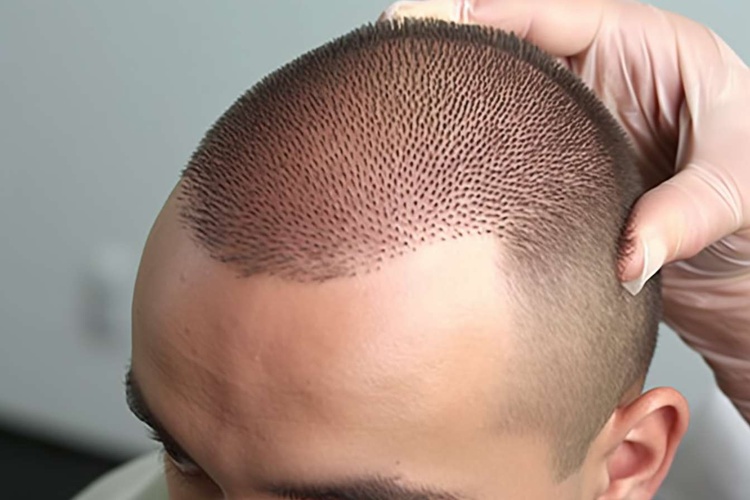Managing Scalp Psoriasis: Causes, Care & Treatment
Scalp psoriasis produces red, itchy, scaly patches that can be uncomfortable and affect confidence. While there is no cure, many approaches — from medicated shampoos and topical agents to systemic drugs, biologics, and light therapy — can control flares and ease symptoms. Discover signs, triggers, evidence-based treatments, and everyday care tips to create a tailored plan with your dermatologist.

Managing Scalp Psoriasis: Causes, Care & Treatment
What scalp psoriasis is and how it shows up
Scalp psoriasis is a long-term autoimmune condition in which skin cells turn over far faster than normal, forming inflamed, often silvery scales on the scalp. It can appear as a few isolated plaques or as large, thickened patches that extend beyond the hairline. Common complaints include intense itching, burning or stinging sensations, cracked or bleeding skin from scratching, and in more severe cases temporary hair shedding driven by inflammation or mechanical trauma to hair follicles.
Typical signs and common triggers
Common symptoms people report are:
- Red, raised patches on the scalp
- Thick, silvery or white scaling that flakes onto clothing
- Persistent itch and a burning or stinging feeling
- Dry, split skin that can crack or bleed after scratching
- Noticeable thinning or hair loss during prolonged flares
Many factors can provoke or aggravate scalp psoriasis. Frequently implicated triggers include:
- Emotional or physical stress
- Cold, dry weather
- Skin injury or irritation, including harsh scalp procedures
- Fungal or bacterial infections
- Certain medications
- Heavy alcohol intake
- Cigarette smoking
- Hormonal shifts such as pregnancy or menopause
Identifying individual triggers and minimizing exposure where feasible is a practical step toward better control.
Topical treatments: the first step for most people
Topical therapies are usually the initial strategy because they act directly on affected skin and avoid systemic side effects. Key topical options include:
- Corticosteroids: Available in forms such as lotions, foams, gels, ointments, and solutions. Steroids reduce inflammation and itching; potency and duration are adjusted by clinicians to limit adverse effects.
- Vitamin D analogues (for example calcipotriene): These slow the excessive growth of skin cells and help clear scales. They are frequently used alone or combined with steroids.
- Coal tar: A traditional anti-scaling and anti-inflammatory agent available as shampoos, creams, or rinses.
- Salicylic acid: A keratolytic that softens and removes thick scales, improving penetration of other treatments.
- Medicated shampoos: Formulations containing coal tar, salicylic acid, or antifungals such as ketoconazole can be used as part of routine care.
Response to topical therapies varies. Many patients benefit from combining agents or alternating treatments on a dermatologist’s advice to maximize clearance and reduce side effects.
When to consider systemic drugs or light treatments
If topical measures are insufficient or the disease is extensive, systemic medications or phototherapy may be recommended.
Systemic options include:
- Methotrexate: An oral immunomodulator that slows skin cell proliferation. Regular monitoring for liver toxicity and blood cell changes is required.
- Cyclosporine: A strong immunosuppressant used for rapid control; long-term use is limited by risks to kidney function and blood pressure.
- Biologics: Injected or infused medications that target specific immune pathways. They can be highly effective for moderate-to-severe or treatment-resistant scalp psoriasis.
Light-based therapies:
- Phototherapy (narrowband UVB): Controlled UVB exposure reduces inflammation and thickening. It is used in clinics under supervision.
- Excimer laser: A focused UVB device that treats individual plaques without exposing unaffected skin.
Both systemic therapies and phototherapy require specialist oversight, individualized risk–benefit assessment, and routine monitoring.
Practical daily care and lifestyle measures
Combining medical treatment with sensible self-care improves outcomes and comfort. Useful measures include:
- Stress reduction: Practices like mindfulness, relaxation techniques, exercise, or counseling can help reduce stress-triggered flares.
- Gentle hair and scalp routines: Choose mild, fragrance-free shampoos; avoid permanent dyeing, perms, tight hairstyles, and excessive heat styling during active flares.
- Regular moisturising: Emollients or natural oils soften scales and soothe the scalp. Applying moisturiser after washing helps lock in hydration.
- Diet and supplements: Some people report benefits from reducing pro-inflammatory foods and increasing omega-3 fats, though scientific evidence is mixed. Discuss dietary changes with your clinician.
- Careful scale removal: Softening scales with oil or salicylic products and then gently combing can help topical medicines penetrate.
- Safe sun exposure: Moderate sun exposure may ease symptoms for some, but avoid sunburn and follow dermatologist guidance.
These strategies do not cure psoriasis but can substantially reduce symptoms, improve comfort, and enhance the effectiveness of prescribed treatments.
| Treatment type | Typical role | Notes on cost (approx.) |
|---|---|---|
| Topical therapies (steroids, tar, medicated shampoos) | First line for mild-to-moderate cases | $10–$100+ depending on product and prescription needs |
| Systemic drugs (methotrexate, cyclosporine) | Moderate-to-severe disease | $30–$300+ per month depending on drug and monitoring |
| Biologics | Moderate-to-severe, refractory cases | $1,000–$5,000+ per month before insurance |
| Phototherapy / Excimer laser | Localized or widespread disease requiring light therapy | $50–$200 per session; course-based pricing varies |
Cost estimates are indicative only and can vary by provider, insurance coverage, and location.
Working with a dermatologist to personalize treatment
Because scalp psoriasis varies widely in severity and appearance, individualized care is important. A dermatologist can confirm the diagnosis, exclude similar conditions such as seborrheic dermatitis or fungal infection, and recommend the right mix of topical, systemic, or light-based options. Ongoing follow-up allows treatment adjustments, safety monitoring for systemic agents, and support for addressing side effects or quality-of-life concerns.
Though scalp psoriasis can be persistent and frustrating, many people achieve meaningful relief by combining medical therapies with thoughtful scalp care and lifestyle changes. If over-the-counter approaches do not help or symptoms worsen, seek professional evaluation.
This article is for informational purposes only and should not be considered medical advice. Please consult a qualified healthcare professional for personalized guidance and treatment.




